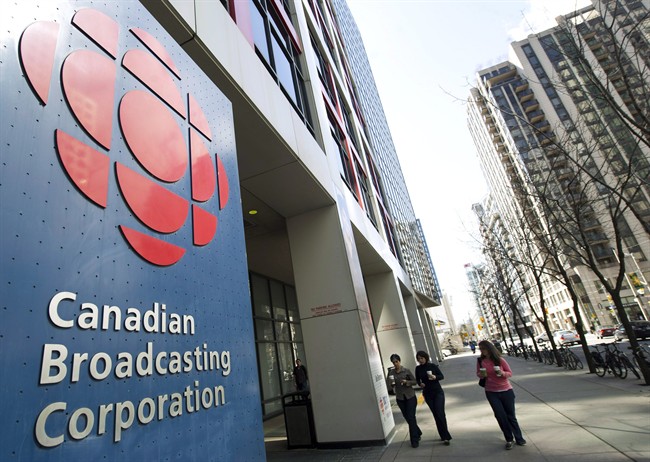OTTAWA – A Senate committee is calling on Canada’s public broadcaster to publicly disclose how much employees make and ensure non-executives aren’t getting paid more than their peers in private broadcasting.

The Senate’s communications committee is also calling on the Canadian Broadcasting Corp. to find new ways to fund its operations in order to limit the amount of funding it receives from the federal government.
The committee rejected the idea of stable, multi-year funding for the Crown corporation, saying funding is based on “the fiscal demands of the federal government.”
Senators raised the possibility of using the PBS funding model – where viewers donate money or pay for sponsorships of programs – or charging a license fee to every home in the country with a television, which is how the BBC receives some of its funds.
READ MORE: CBC boss says Evan Solomon didn’t meet ethical standard
“Even though it’s more subtle, this is proposing to cut CBC’s budget,” said Ian Morrison from the advocacy group, Friends of Canadian Broadcasting.
The Senate committee also called on the CBC to cut production of all non-news and current events programs that private companies develop. In its place, the committee recommended the CBC create a “superfund” that would dole out cash to private producers, as opposed to the CBC spending the money on in-house productions.
Such a move, Morrison argued, would render CBC nothing more than “a transmitter of programs that are conceived and thought up by private interests.”
The committee says it’s time to update the Broadcasting Act, noting the legislation hasn’t been updated since the “pre-smartphone, pre-multi-platform” era of 1991.
- ‘Shock and disbelief’ after Manitoba school trustee’s Indigenous comments
- Canadian man dies during Texas Ironman event. His widow wants answers as to why
- Several baby products have been recalled by Health Canada. Here’s the list
- ‘Sciatica was gone’: hospital performs robot-assisted spinal surgery in Canadian first
The recommendations stem from what was a politically-charged study of the CBC, where senators pressed the broadcaster for salaries of its top on-air talent, specifically chief correspondent Peter Mansbridge.
There were also testy exchanges between senators and CBC president Hubert Lacroix during his two appearances before the committee, and threats the committee would use its parliamentary powers to force the CBC to hand over the salaries of Mansbridge and others.
READ MORE: CBC cuts 657 jobs and slashes $130 million from its budget
The ombudsman for Radio-Canada, in his annual report, suggested senators involved in the study showed a lack of knowledge about the news media and the role of the CBC, and “a clear hostility toward the public broadcaster, which is astonishing in light of the committee’s mandate.”
The Senate report also references scandals involving former radio host Jian Ghomeshi and business correspondent Amanda Lang in calling for stricter policies to prevent problems, rather than having to react after they become public.
In a blunt response posted on the CBC website on Monday, the CBC said: “Frankly, we were hoping for more.”
During the hearings, the broadcaster had discussed detailed solutions to the changing business environment, the statement notes.
“This report fails to propose constructive suggestions to address any of the real challenges facing the broadcasting system.”
A Liberal senator on the committee said the study was “truly a lost opportunity,” blaming Conservative senators for spending “too much time denouncing the CBC and not enough on a way forward.”
Sen. Art Eggleton rejected some of the recommendations and says the government should increase funding to the CBC by almost one-fifth.
Eggleton said the government should spend about $40 per capita on the CBC, above the $33 per capita the report notes the broadcaster received in 2011, which would be half of what other industrialized nations spend on their public broadcaster.
He also said the funding should be adjusted to inflation and help the CBC eliminate commercial advertising



Comments